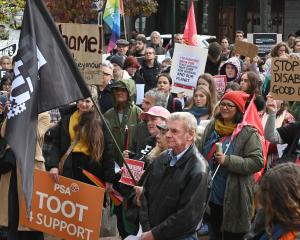She has started a project involving Dunedin couples expecting their second child to determine when and why people decide to expand their families.
Dr Hohmann-Marriott has two children, aged 3 and 7, which makes her something of an anomaly, by international standards.
She says the falling birth rate has reached crisis proportions in southern Europe, Japan and South Korea.
Worldwide, fewer people are choosing to have children, and those who do breed are having fewer offspring than previous generations did.
New Zealand's birth rate hardly fluctuates from an average 2.2.
"I think that's what's interesting here: it isn't a crisis, so what is it about parents' lives here that's different?" Dr Hohmann-Marriott asked.
Most of her earlier research focused on data from outside New Zealand, including from the United Kingdom.
She said there was much study internationally into the reasoning behind having a first child, but not for having a second.
"There are all sorts of different circumstances in people's lives and that's where it gets interesting. So many things about a first child can affect the decision to have a second, from having a bad birth experience to the difference between planned and accidental," she said.
Dr Hohmann-Marriott seeks 10 to 15 couples to interview.
Anyone expecting a second child is of interest to the researcher, who will conduct confidential hour-long interviews with project participants.
"I'm really looking for how people's experiences with their first child shape their thought processes about having another." She hoped to finish interviewing by winter and then start analysing data.
She would ask about the timing of having a second child, the length of gaps between pregnancies, and reasons for wanting another child.
"Everybody's story is different, but I definitely expect to find some common threads. There will be something that will come out that people share," she said.












